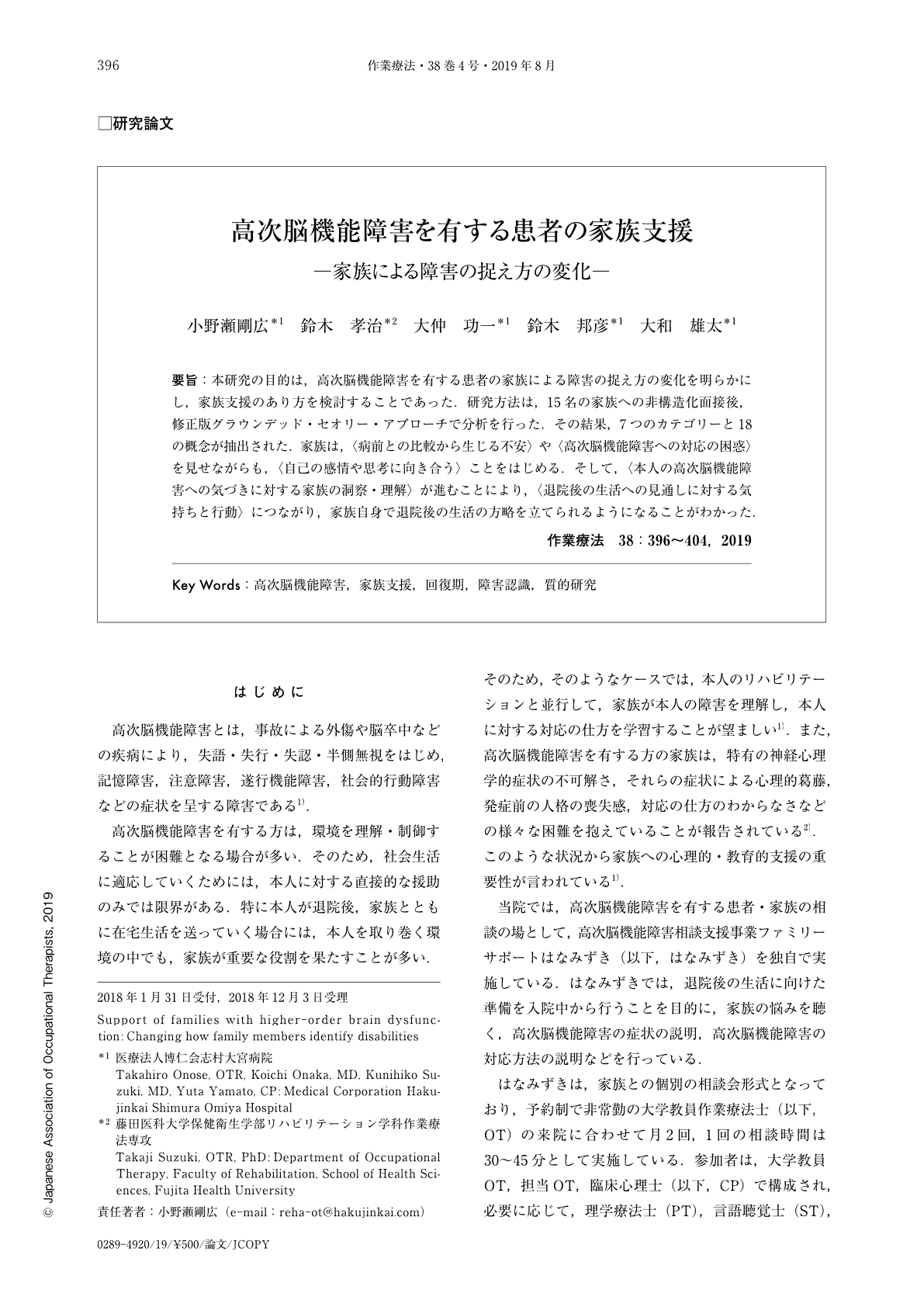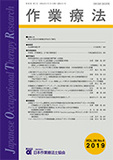Japanese
English
- 販売していません
- Abstract 文献概要
- 1ページ目 Look Inside
- 参考文献 Reference
- サイト内被引用 Cited by
要旨:本研究の目的は,高次脳機能障害を有する患者の家族による障害の捉え方の変化を明らかにし,家族支援のあり方を検討することであった.研究方法は,15名の家族への非構造化面接後,修正版グラウンデッド・セオリー・アプローチで分析を行った.その結果,7つのカテゴリーと18の概念が抽出された.家族は,〈病前との比較から生じる不安〉や〈高次脳機能障害への対応の困惑〉を見せながらも,〈自己の感情や思考に向き合う〉ことをはじめる.そして,〈本人の高次脳機能障害への気づきに対する家族の洞察・理解〉が進むことにより,〈退院後の生活への見通しに対する気持ちと行動〉につながり,家族自身で退院後の生活の方略を立てられるようになることがわかった.
We examined changes in how to identify disabilities by families of patients with higher brain dysfunction and investigated ways of supporting family members. A modified grounded-theory approach after unstructured interviews with 15 family members was used. As a result, seven categories and 18 concepts were extracted. Families begin to face their own emotions and thoughts while showing “anxiety resulting from comparison with pre-illness” and “puzzled responses to higher brain dysfunction”. “Family insight and awareness of the subject's higher brain dysfunction” advanced leading to a feeling and action on the prospects for life after discharge, so the families themselves can create strategies to live after discharge.

Copyright © 2019, Japanese Association of Occupational Therapists. All rights reserved.


